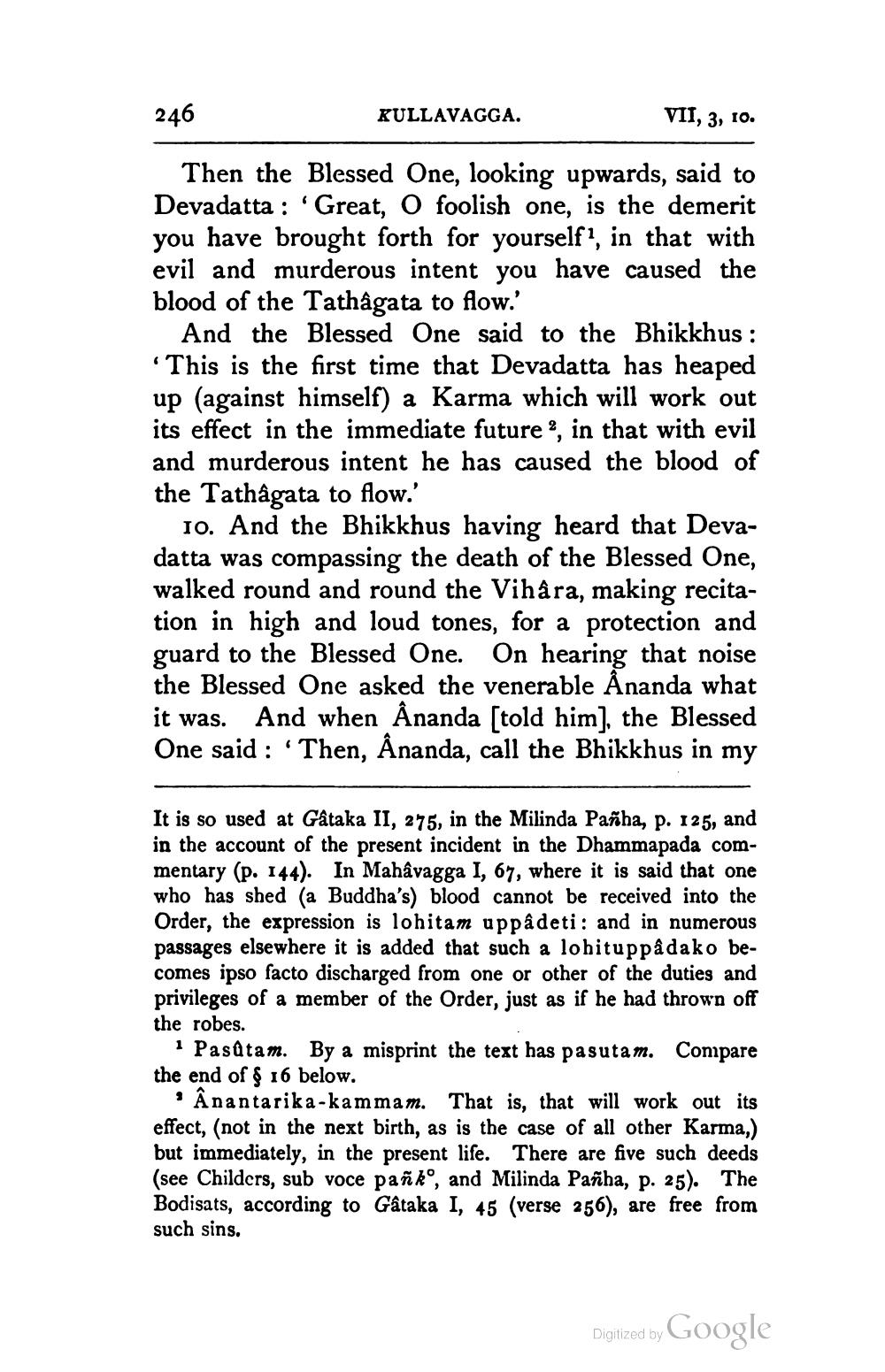________________
246
KULLAVAGGA.
VII, 3, 10.
Then the Blessed One, looking upwards, said to Devadatta : 'Great, О foolish one, is the demerit you have brought forth for yourself?, in that with evil and murderous intent you have caused the blood of the Tathagata to flow.'
And the Blessed One said to the Bhikkhus : This is the first time that Devadatta has heaped up (against himself) a Karma which will work out its effect in the immediate future ?, in that with evil and murderous intent he has caused the blood of the Tathagata to flow.'
10. And the Bhikkhus having heard that Devadatta was compassing the death of the Blessed One, walked round and round the Vihara, making recitation in high and loud tones, for a protection and guard to the Blessed One. On hearing that noise the Blessed One asked the venerable Ånanda what it was. And when Ânanda (told him), the Blessed One said : ‘Then, Ananda, call the Bhikkhus in my
It is so used at Gâtaka II, 275, in the Milinda Pañha, p. 125, and in the account of the present incident in the Dhammapada commentary (p. 144). In Mahâvagga I, 67, where it is said that one who has shed a Buddha's) blood cannot be received into the Order, the expression is lohitam uppâdeti: and in numerous passages elsewhere it is added that such a lohituppadako becomes ipso facto discharged from one or other of the duties and privileges of a member of the Order, just as if he had thrown off the robes.
Pastam. By a misprint the text has pasutam. Compare the end of $ 16 below.
· Anantarika-kammam. That is, that will work out its effect, (not in the next birth, as is the case of all other Karma,) but immediately, in the present life. There are five such deeds (see Childers, sub voce pañko, and Milinda Panha, p. 25). The Bodisats, according to Gâtaka I, 45 (verse 256), are free from such sins.
Digitized by Google




